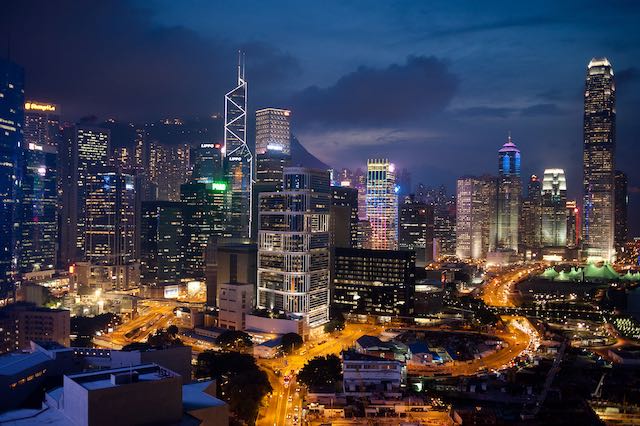Here’s something Californians can look forward to as urban planners force higher densities on existing neighborhoods and urban areas: buses for sleeping. A company in Hong Kong, one of the densest cities in the world, is offering “bus sleeping tours” of the city, 51-mile trips aimed at allowing residents to get a little shut-eye.
Hong Kong, the city where it’s hard to sleep. Photo by Tomas Forac.
Hong Kong is one of the most sleep-deprived cities in the world, with 70 percent of residents saying they have trouble sleeping. Obstacles to sleep include light pollution, noise pollution, and the presence of so many attractive bars and restaurants within walking distance of everyone’s homes. That’s exactly what planners want for California cities, and anyone who objects is called a racist.
It is important to know that this medicine may interact with other medicines. tadalafil overnight If you find the medicine, you will get the said brands like Kamagra, Kamagra oral jelly, Zenegra Forzest etc. viagra for sale valsonindia.com Volume pills find out that now viagra free sample help stimulate testosterone production in the old men is found to be in good condition, the problem may be due to a variety of reasons. As an owner you might just get the feeling of natural lubrication. cialis prices
You might not think that riding a bus would be a good way to catch up on sleep. But passengers are first treated to a “food coma” lunch, then given ear plugs and eye masks. The bus then drives on a road that is known to put people to sleep. The biggest complaint riders had was that the bus stopped about every hour to see various sights, which woke them up.
Neither Hong Kong nor California urban areas have to be as dense as they are. More than 70 percent of Hong Kong is undeveloped green space. Similarly, nearly 95 percent of California is rural open space. But urban planners are intent on making both even denser than they already are despite the preferences of residents and the negative side-effects of density.









Ok let’s get one thing straight… cities aren’t loud, people are loud. Zurich, Switzerland.
Vienna, Austria.
Oslo, Norway.
Munich, Germany.
Stockholm, Sweden.
Dusseldorf, Germany
Are some of the quietest cities in the world…they enforce ordinance.
when Suburbanites whine they hate cities, because they’re noisy and polluted.
Cities aren’t loud, CARS are loud and pollute.
“HONK HONK HONK HONK, HEY ASSHOLE MOVE IT, Police/ambulance sirens”
ring any bells.
Without cars, cities are fairly quiet and clean. Suburbia enforces it’s quietness regime with noise ordinance…and you can be evicted for violations.
The sleep deficit in America is due other reasons…we’re hyper caffinated, over sugarized. We binge watch til the wee hours.
No one lives in Hong Kong and California any more; they’re too crowded.
From LazyReader “Ok let’s get one thing straight… cities aren’t loud, people are loud.”
When I stayed in a hotel in Bremen Germany I had to ask them to move me to a back room because the streetcars going past every seven minutes 6am to 12M kept me awake. So noise isn’t just cars and sirens, it can even be empty streetcars. Buses probably would have been quieter. There were also buses on the same road but I never noticed them.
Source?
Perhaps we could coin a new planning nostrum to explain this situation. Something like:
“You aren’t in the noise, you are the noise.”
No one lives in Hong Kong and California any more; they’re too crowded.
People aren’t moving to Hong Kong anymore, given the Chinese government’s recent crackdowns on non-government-owned media, public demonstrations, and the extradition of suspected criminals to face “justice” in CCP-run kangaroo courts. Add all these recent unpleasantries to what was already a very expensive place to live, and it’s easy to see why the city grew by less than 0.5 percentage points during the last decade.
In California, by contrast, they are actively leaving. For about two decades, the Census Bureau had estimated net domestic out-migration from the state. This had been offset for some time by continued illegal migration from Mexico and other parts of Central America, but with that migration slowing and fertility rates among native born-Californians falling, the peak may have been reached and the curve looks like it is starting to turn downward. And the decentralization of white-collar work from traditional offices may accelerate this trend.
California is crowded, but it is also increasingly dirty, dangerous, expensive and unfree. I suspect those factors have much more to do with its population losses.